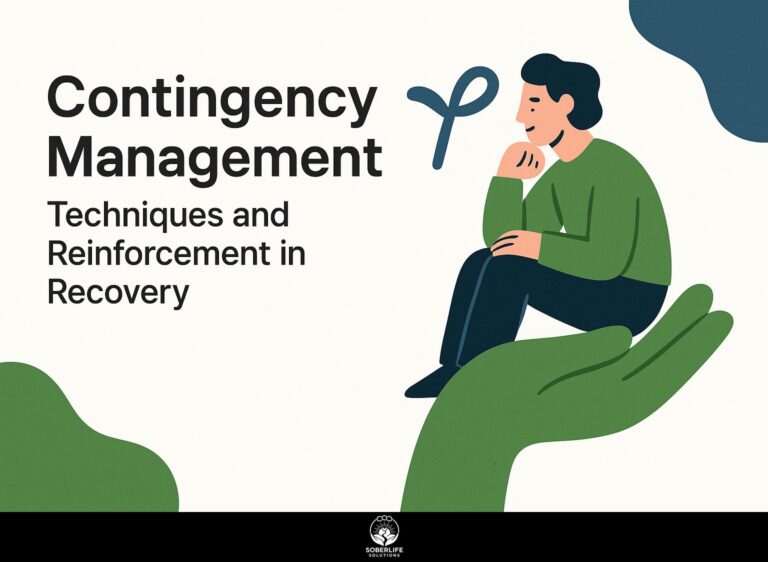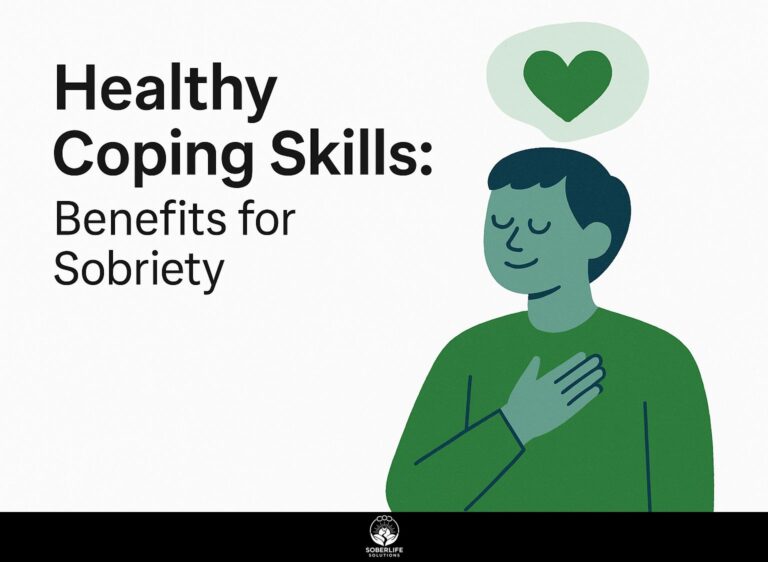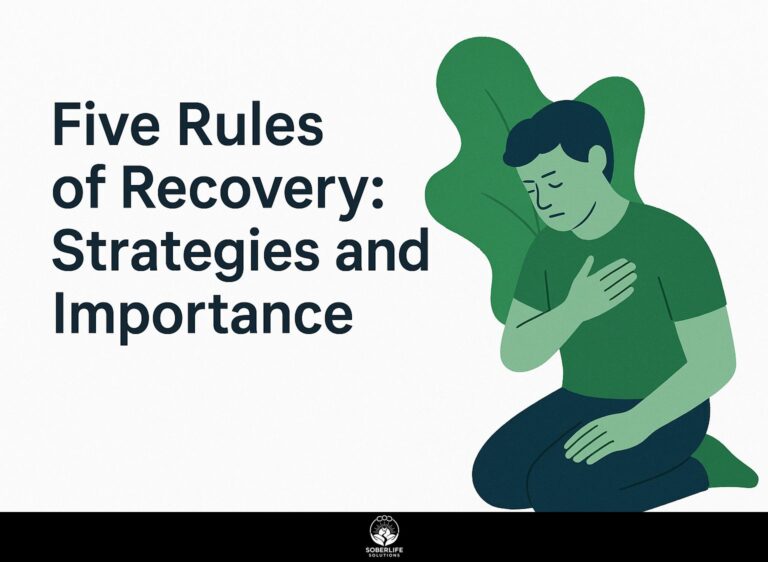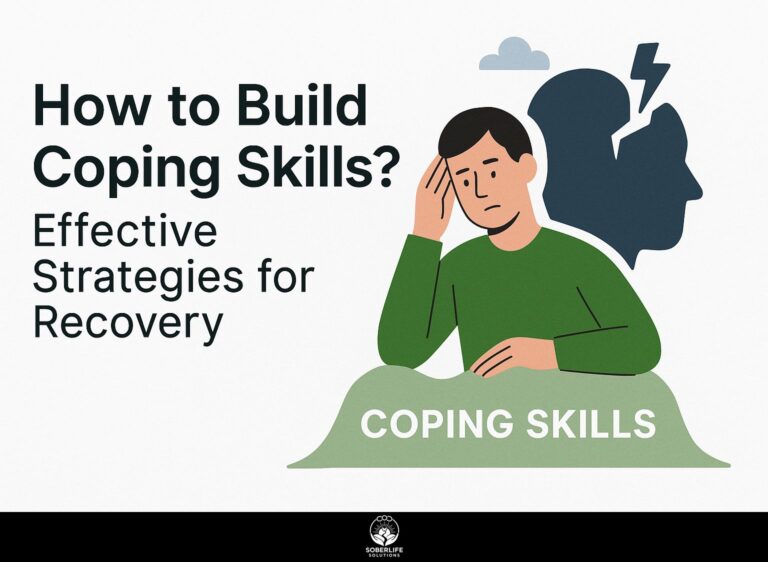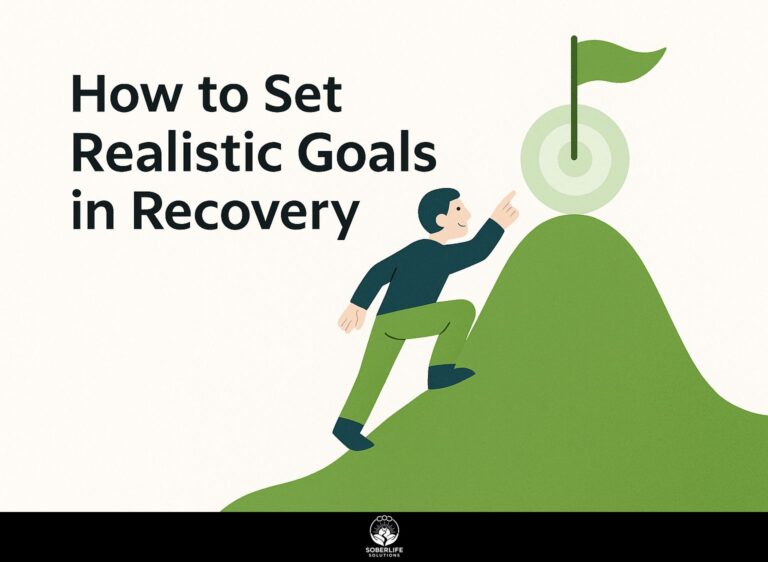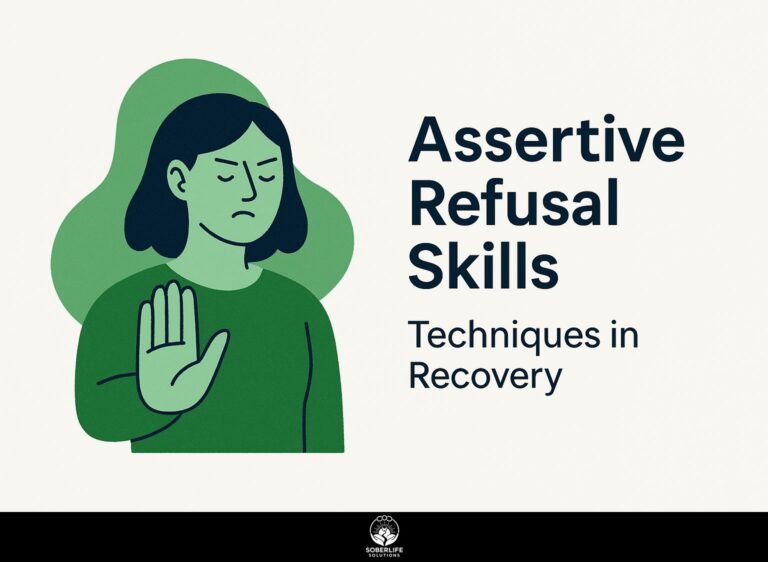Bibliotherapy Techniques for Relapse Prevention
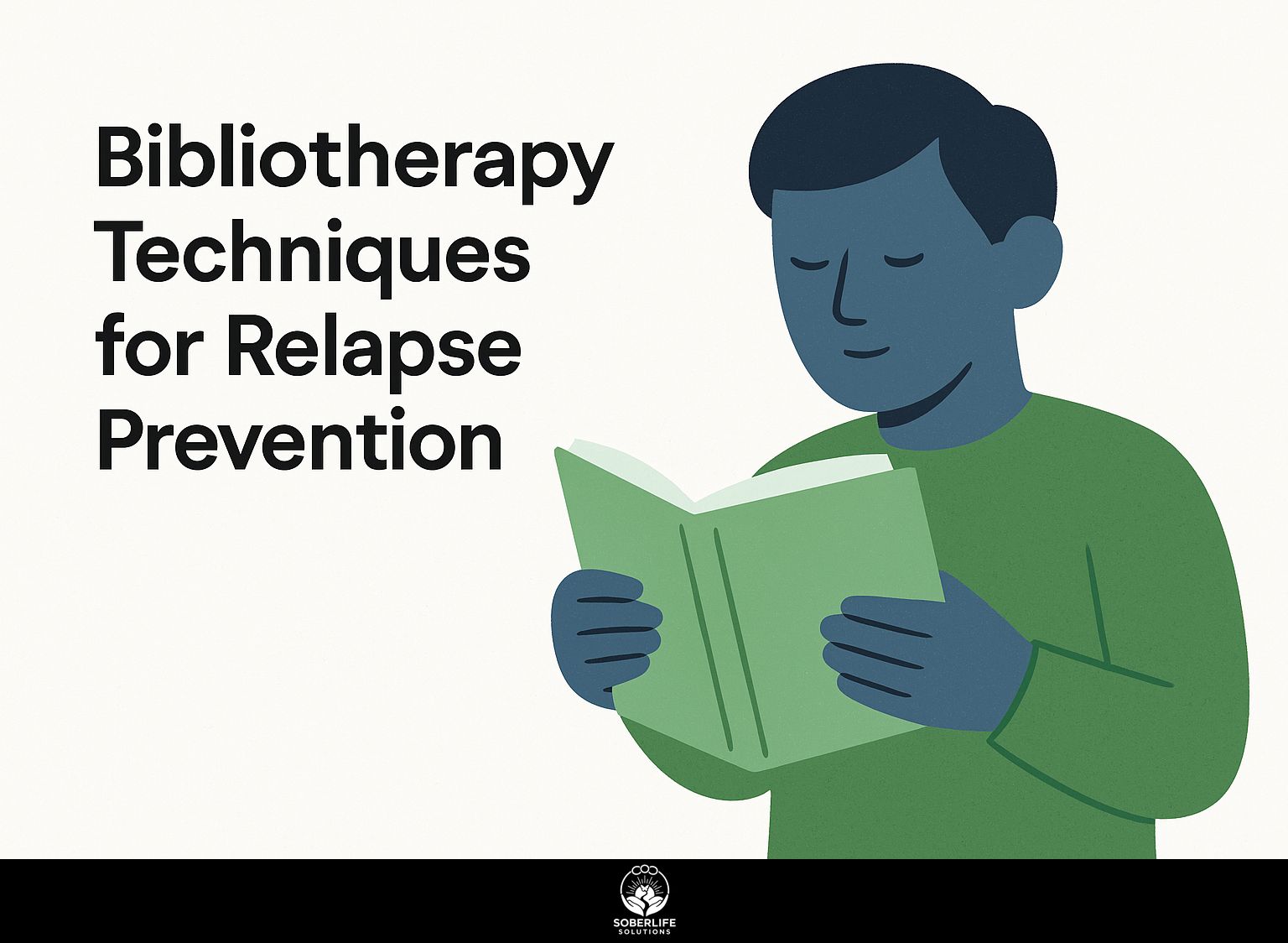
Bibliotherapy is emerging as a powerful tool for mental health support, especially among healthcare workers facing the emotional toll of COVID-19. This review looks into successful methods of using books to prevent relapse, showing how carefully selected reading materials can provide ways to cope and build emotional strength. Adding reading to therapy can improve health and help individuals impacted by COVID-19. Learn how these methods can significantly help in recovering mental health.
Key Takeaways:
Definition and Purpose
Bibliotherapy is the use of books for healing. It helps improve emotional health and encourages changes in thinking.
This method often addresses mental health issues such as depression and anxiety through carefully chosen texts. For instance, self-help books like “The Gifts of Imperfection” offer strategies for building resilience, while poetry collections can evoke emotions and reflections beneficial for healing.
Reading novels about familiar challenges can help people feel connected and understood. Using bibliotherapy effectively involves tailoring reading lists to the individual’s experiences, encouraging them to engage deeply with the material, and reflecting on their thoughts and feelings afterward.
History and Development
Bibliotherapy started in ancient Greece and has changed a lot, especially in today’s psychological support and intervention techniques.
Initially applied in the early 20th century, bibliotherapy began gaining recognition within mental health care following the 1916 publication of ‘Bibliotherapy: The Therapeutic Use of Books’ by Samuel Crothers. This project helped include literature in therapy methods, letting therapists suggest specific books to help with mental health issues.
Over the years, therapists have improved these methods by using novels, poetry, and self-help books to aid emotional and mental development. Today, digital platforms provide resources that make information easy to access and allow individuals to take control of their own choices. For those interested in exploring the comprehensive history and evolution of bibliotherapy, Psychology Today provides an in-depth article that highlights its impact on mental health practices.
Understanding Relapse Prevention
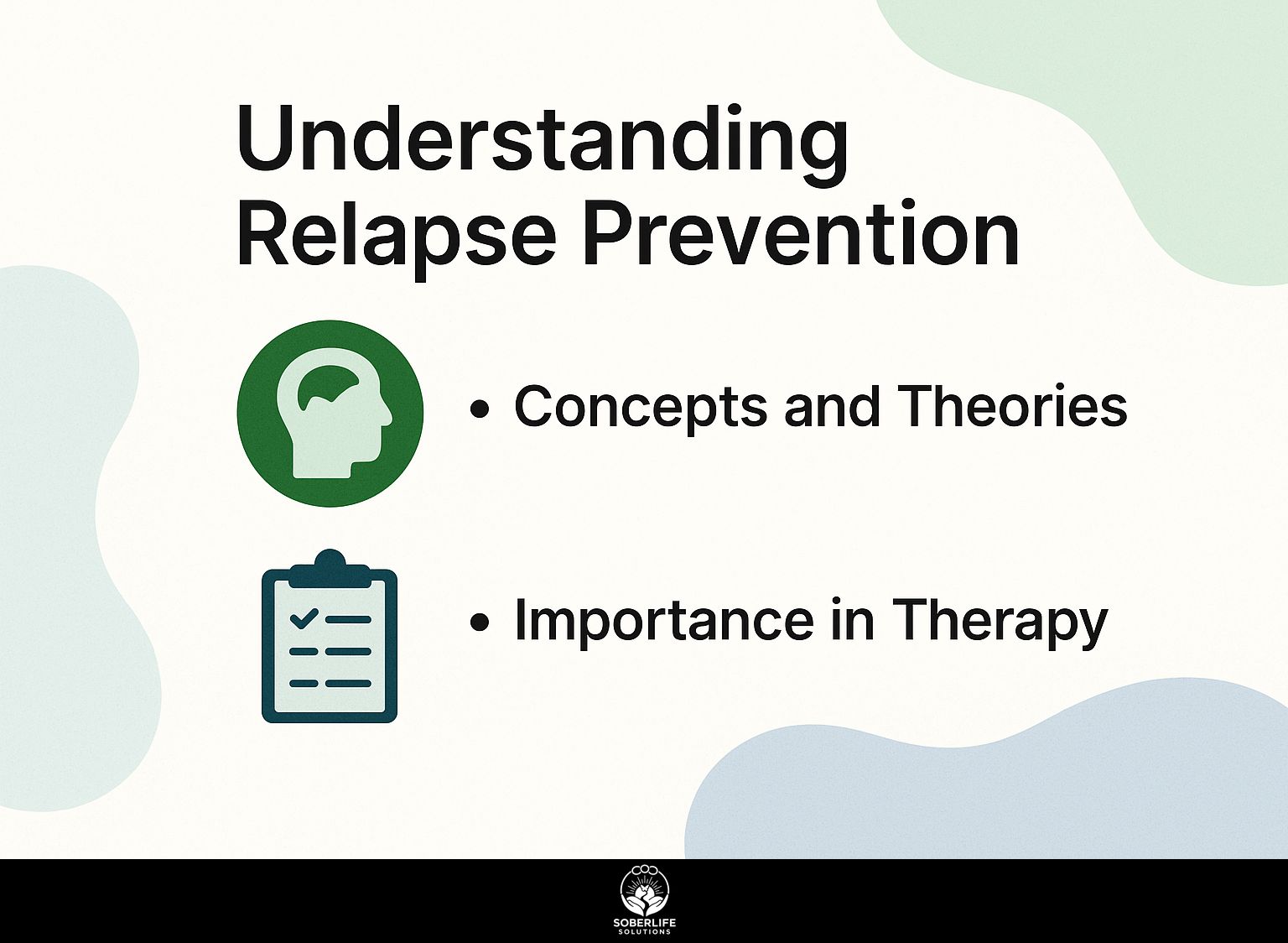
Stopping relapse is important in therapy, especially for those dealing with depression and anxiety. Creating a comprehensive approach often includes understanding various relapse prevention techniques-these strategies not only address immediate triggers but also build long-term resilience.
Concepts and Theories
Core theories of relapse prevention often draw from cognitive behavioral therapy, emphasizing the role of thought patterns in emotional states and behaviors. According to Psychology Today, this approach helps to significantly reduce relapse rates by modifying destructive habits.
To effectively implement relapse prevention strategies, consider using triggers to identify high-risk situations. For example, if social gatherings lead to cravings, develop coping strategies such as deep breathing or having a supportive friend present.
Employing tools like a thought record can help challenge negative thought patterns, allowing for healthier responses. Regular self-reflection, perhaps through journaling or support group discussions, reinforces positive behavior changes.
Combining these methods can lead to a sustainable lifestyle free from past temptations.
Importance in Therapy
Knowing how to stop relapses in therapy is important for better recovery outcomes for people with mental health problems.
Relapse rates for mental health conditions can be alarmingly high; studies indicate that up to 50% of individuals may relapse without structured interventions. To address this, therapy programs more often include specific strategies to prevent relapse.
Techniques such as cognitive-behavioral therapy (CBT) can help patients identify triggers, while support groups provide ongoing encouragement. Making personal coping strategies assists patients in applying the skills they have gained in daily life.
For example, including mindfulness exercises in daily routines can reduce anxiety, help maintain recovery, and decrease the likelihood of relapse. According to ScienceDirect, effective relapse prevention strategies are critical for managing depression and anxiety, underscoring the importance of these interventions.
Bibliotherapy Techniques
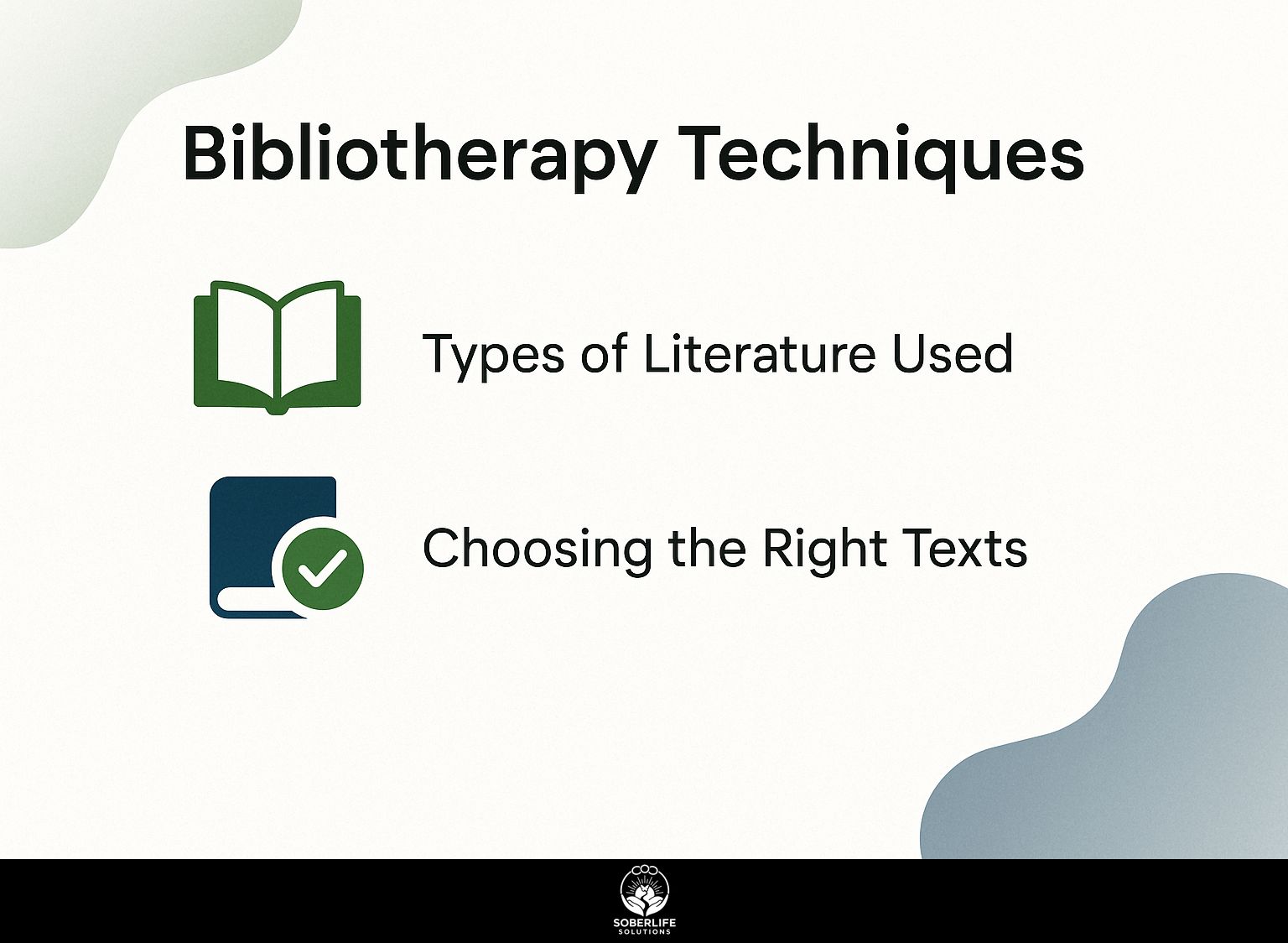
Different methods in bibliotherapy use literature to help with psychological problems, offering specific strategies for various situations.
Types of Literature Used
The types of literature used in bibliotherapy range from classic novels to contemporary self-help guides, each serving unique therapeutic purposes.
Fiction, such as “To Kill a Mockingbird” by Harper Lee, often helps readers process complex emotions like empathy and injustice, while poetry can evoke deep introspection.
Books like “The Body Keeps the Score” by Bessel van der Kolk help people heal from trauma, offering practical advice.
Self-help books like “The Gifts of Imperfection” by Bren Brown help readers to be kinder to themselves, focusing on problems with self-worth and anxiety.
By choosing books that connect with their own life stories, people can use literature to help with emotional recovery.
Choosing the Right Texts
Choosing the right books for bibliotherapy is important since it affects how well the therapy works for those involved.
- Start by identifying the emotional or psychological issues participants are facing. For example, if someone is dealing with anxiety, select books like “The Gifts of Imperfection” by Bren Brown, which encourages kindness towards oneself.
- Use platforms like Goodreads to find community reviews and opinions, which can help check if the content is suitable. Check out websites like Book Riot or Psych Central for book lists focused on particular topics.
- This will improve involvement and help recovery through stories people can relate to.
Implementing Bibliotherapy for Relapse Prevention
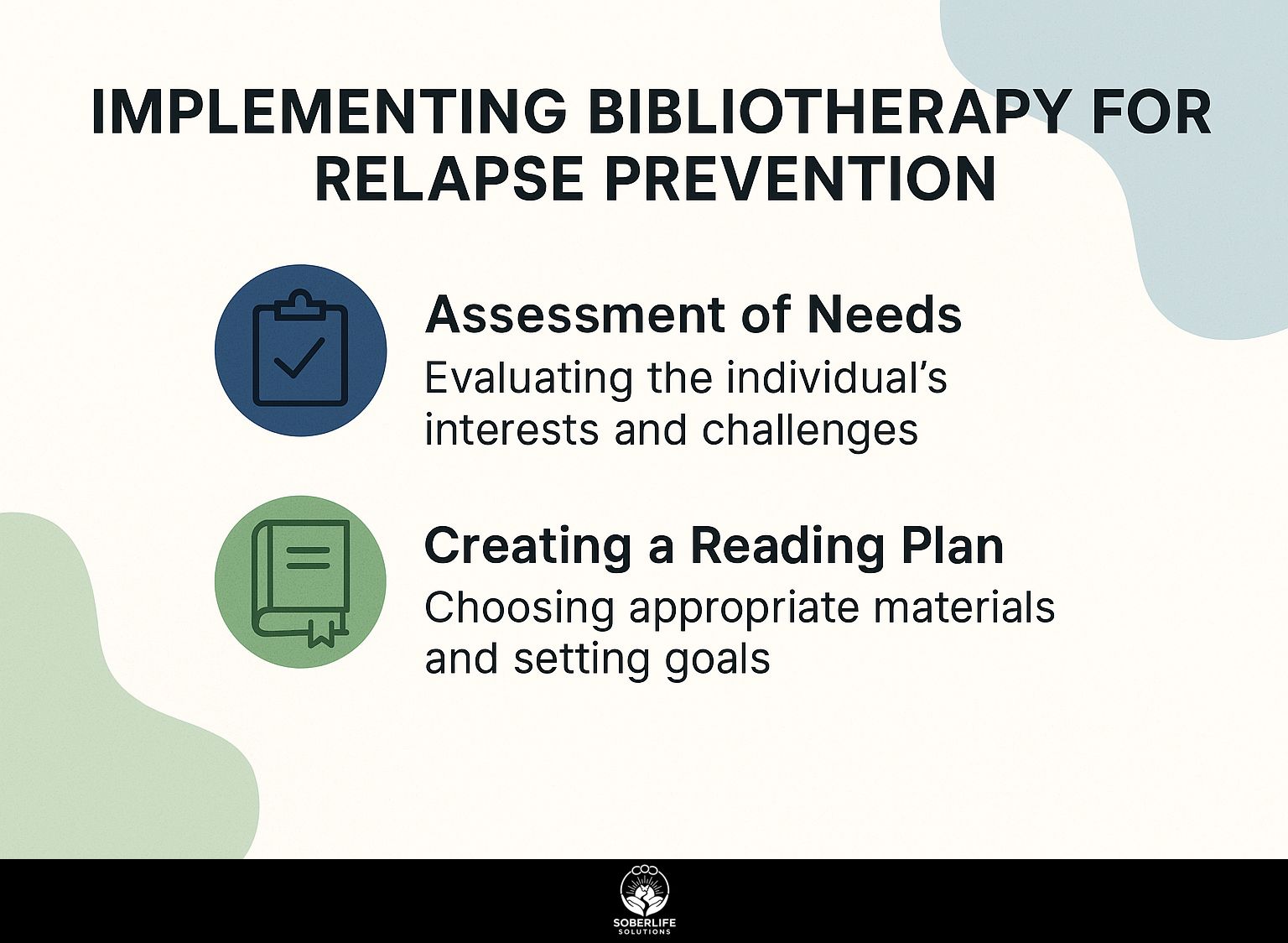
Using bibliotherapy to stop relapse involves assessing each individual thoroughly and making custom reading lists to match their particular needs.
Assessment of Needs
A careful assessment of needs is important for successful bibliotherapy, ensuring the chosen materials match the patient’s specific mental state.
Begin with structured interviews that let patients answer freely, helping you learn more about their feelings. Use this approach alongside common assessments like the Beck Depression Inventory to accurately evaluate emotional conditions.
This mix provides a clear view of their mental health, helping to choose the right reading materials.
Think about using tools like Goal Attainment Scaling to monitor how the patient is doing over time, making sure that your bibliotherapy treatments are customized and effective.
Creating a Reading Plan
Having a structured reading plan can make bibliotherapy more effective by ensuring that individuals consistently read the chosen books.
To create a good reading plan, begin by figuring out your goals: Do you want to learn something new, unwind, or try different types of books?
Next, decide on frequency-aim for at least three sessions per week. Each session can last 20-30 minutes, allowing for meaningful engagement without overwhelming yourself.
Use Google Sheets to track your progress, noting the titles read and your reflections. This way, you can change your plan as your interests change and make sure you have a well-rounded, enjoyable reading experience.
Case Studies and Examples
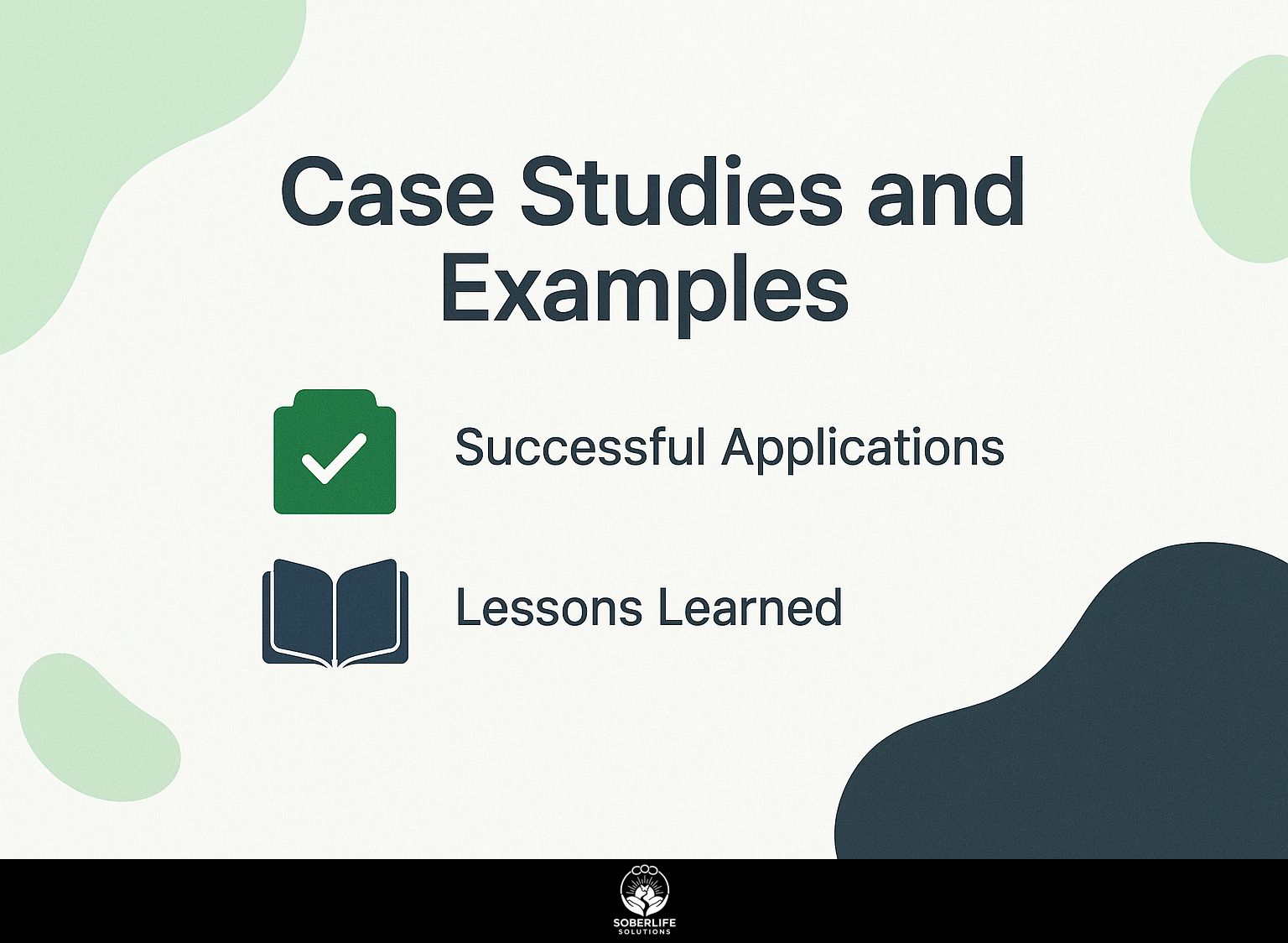
Looking at examples of bibliotherapy demonstrates how it has been successfully used in different mental health settings, offering practical examples of its success.
Successful Applications
Various successful uses of bibliotherapy have shown its benefits in different environments, especially for healthcare workers during the COVID-19 pandemic.
Programs like the ‘Books on Prescription’ initiative provided healthcare workers with selected reading lists about resilience and mental health. Participants read novels and self-help books, which helped them handle emotions and reduce stress.
In a study involving nurses, 80% reported decreased anxiety levels after a six-week bibliotherapy program.
Digital platforms like `The Reading Agency’ offer e-books and organized discussions, which help with peer support and shared experiences, improving how staff deal with issues both individually and as a group.
Lessons Learned
Examining what has been learned from bibliotherapy projects can help shape upcoming efforts and make the interventions more successful.
Effective bibliotherapy programs typically offer books chosen for each person, so they can connect with the material.
For instance, the use of fiction to address anxiety showed promise at a local health clinic, where patients reported feeling understood and less isolated.
Challenges included selecting appropriate texts-ensuring they are relatable yet not triggering. Workshops for facilitators to hone their skills in guiding discussions also proved essential.
Custom reading lists and experienced guides can make bibliotherapy treatments much more effective.
Challenges and Considerations
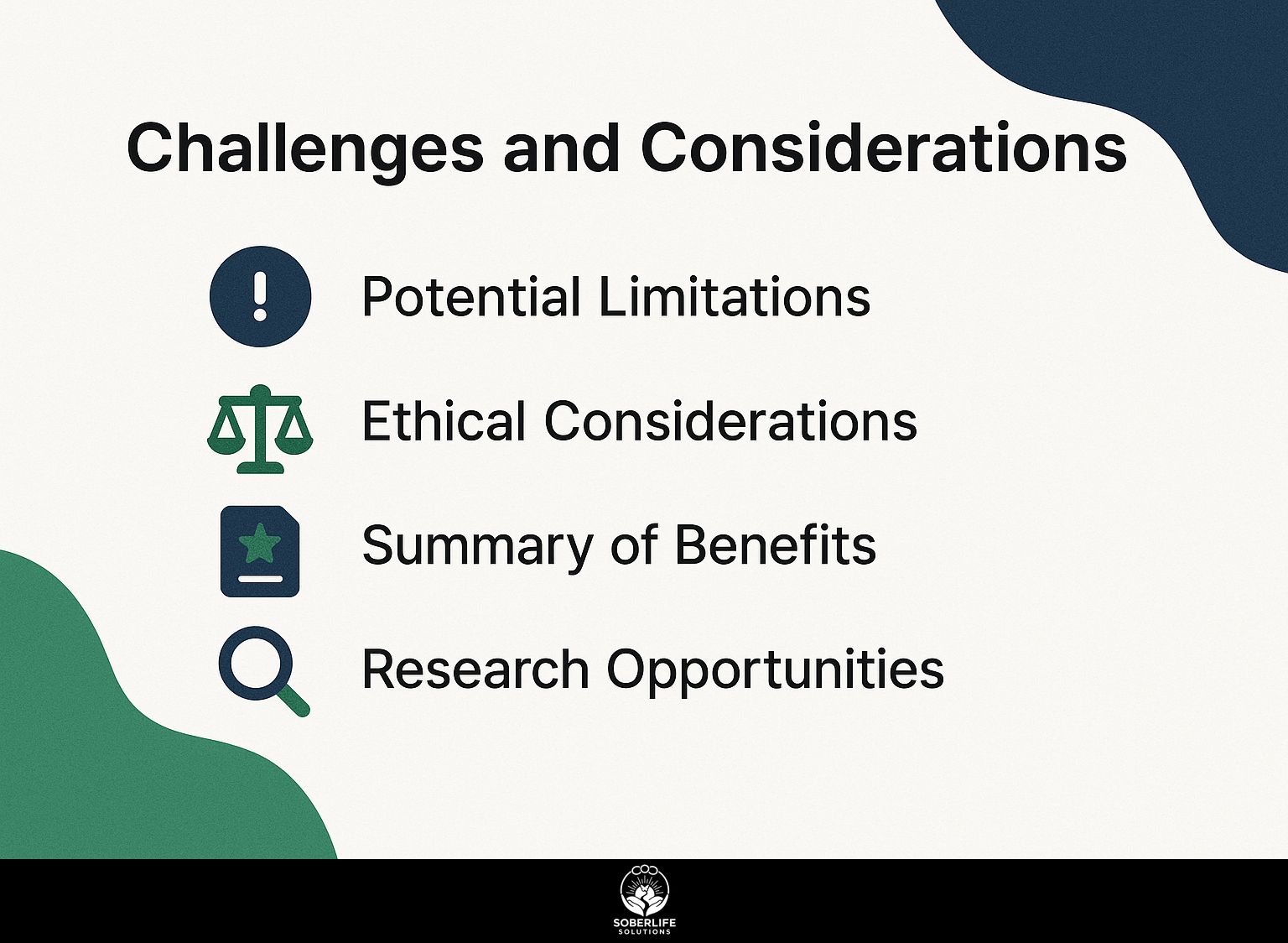
While bibliotherapy is helpful, it also has some problems and ethical concerns that professionals need to manage to use it properly.
Potential Limitations
Identifying potential limitations of bibliotherapy, such as limited reach and the need for professional guidance, is essential for realistic applications.
A study published in the Journal of Clinical Psychology found that reading therapy may not be suitable for everyone, particularly for those with severe mental health issues requiring expert care.
One strategy to overcome this limitation is to pair bibliotherapy with professional support, allowing practitioners to recommend specific texts that align with individual client needs.
Improving accessibility means setting up community programs that share selected reading materials and organize discussion groups. This combined approach can significantly increase engagement and outcomes for participants.
Ethical Considerations
Ethical considerations in bibliotherapy revolve around patient autonomy, informed consent, and the potential for harm in misapplications.
Practitioners should prioritize patient autonomy by respecting individual preferences in reading materials. It is very important for professionals to explain how bibliotherapy works and what the risks might be.
To prevent problems, make sure the selected texts match the client’s situation and feelings. For instance, a text addressing trauma should be used with caution and only if the client is ready to engage with such material.
Following these ethical guidelines helps create a supportive setting where clients feel safe and appreciated.
Summary of Benefits
Reading therapy can improve emotional health and help people deal with mental health issues, especially during difficult times.
Research indicates that participants engaging in bibliotherapy report a 60% reduction in anxiety levels. To implement bibliotherapy effectively, identify relatable literature that aligns with the individual’s emotional state or challenges.
For instance, individuals coping with grief may benefit from reading ‘The Year of Magical Thinking’ by Joan Didion. Using online bibliotherapy platforms can help create customized reading lists.
Reading for 15-30 minutes each day can improve this habit, helping you think and manage feelings.
Research Opportunities
There are many possibilities for further research in bibliotherapy, especially with various groups and mental health issues.
For example, looking into how bibliotherapy is used in children’s hospitals could show how storytelling helps kids become emotionally stronger. Researchers might employ randomized controlled trials to measure outcomes by selecting age-appropriate literary texts and assessing their impact on anxiety levels.
Studying bibliotherapy in marginalized communities can reveal unique cultural views. Researchers can use focus groups to understand how participants react to chosen books. These methods improve knowledge and encourage practices that meet the unique needs of these groups.
Frequently Asked Questions
What are bibliotherapy techniques for relapse prevention?
Bibliotherapy techniques for relapse prevention involve using reading and other literary resources as a form of therapy to help individuals in recovery maintain sobriety and prevent relapse. These techniques can include reading self-help books, participating in book clubs or group discussions, and journaling.
How can bibliotherapy techniques help prevent relapse?
Reading therapy methods can help avoid falling back into old habits by offering people a secure way to think about themselves, learn ways to handle stress, and understand their own thoughts and actions. Reading and discussing literature can also help individuals feel connected and understood, which can reduce feelings of isolation and potential triggers for relapse.
What types of literature are used in bibliotherapy for relapse prevention?
Bibliotherapy for relapse prevention can include a wide range of literature, such as self-help books, memoirs, novels, and poetry. The key point is that the reading material should connect with the person and be useful for their recovery process.
Can bibliotherapy techniques be used alone or in conjunction with other treatments?
Bibliotherapy techniques can be used alone, but they are often most effective when used in conjunction with other treatments, such as therapy, support groups, and medication. They can also complement other healthy coping strategies and activities, such as exercise, mindfulness, and social support.
Can everyone in recovery benefit from bibliotherapy?
Bibliotherapy might not work for everyone in recovery because some people have specific likes or difficulties that make this type of therapy less helpful. It is important to discuss with a healthcare professional or therapist to determine if bibliotherapy is a suitable option for an individual’s specific needs and goals.
Are there any potential risks or drawbacks of using bibliotherapy techniques for relapse prevention?
As with any therapy or treatment, there may be potential risks or drawbacks to using bibliotherapy techniques for relapse prevention. These can include triggering content in literature, a lack of individualized support, or unrealistic expectations. It is important to work with a trained professional and monitor any potential negative effects while using bibliotherapy techniques.

